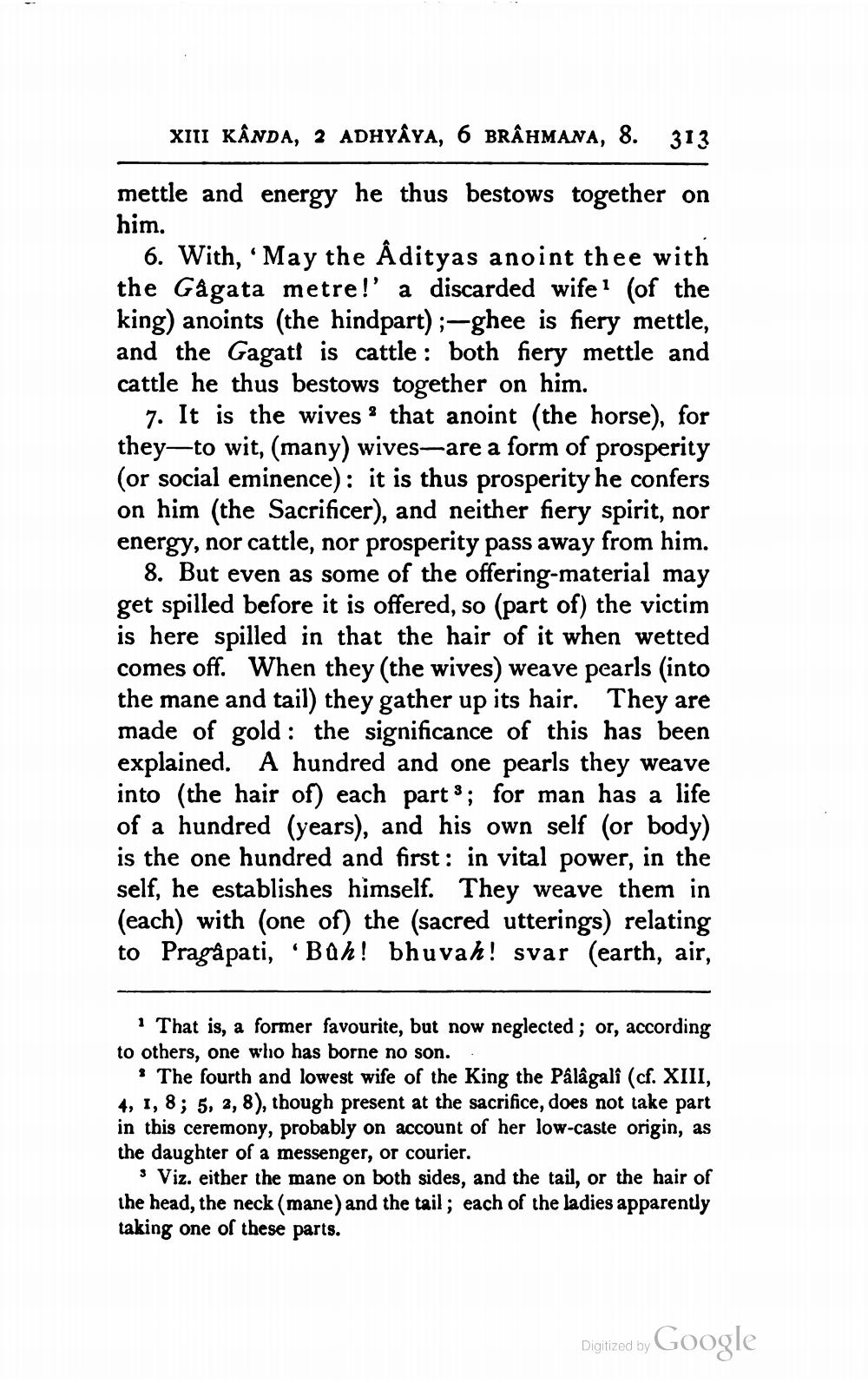________________
XIII KÂNDA, 2 ADHYAYA, 6 BRÂHMANA, 8.
313
mettle and energy he thus bestows together on
him.
6. With, ‘May the Adityas anoint thee with the Gågata metre!' a discarded wife 1 (of the king) anoints (the hindpart) ;-ghee is fiery mettle, and the Gagati is cattle: both fiery mettle and cattle he thus bestows together on him.
7. It is the wives that anoint (the horse), for they—to wit, (many) wives--are a form of prosperity (or social eminence): it is thus prosperity he confers on him (the Sacrificer), and neither fiery spirit, nor energy, nor cattle, nor prosperity pass away from him.
8. But even as some of the offering-material may get spilled before it is offered, so (part of) the victim is here spilled in that the hair of it when wetted comes off. When they (the wives) weave pearls (into the mane and tail) they gather up its hair. They are made of gold : the significance of this has been explained. A hundred and one pearls they weave into (the hair of) each part 3; for man has a life of a hundred (years), and his own self (or body) is the one hundred and first: in vital power, in the self, he establishes himself. They weave them in (each) with (one of) the (sacred utterings) relating to Pragåpati, ‘Bah! bhuvah! svar (earth, air,
1 That is, a former favourite, but now neglected; or, according to others, one who has borne no son.
* The fourth and lowest wife of the King the Pâlâgali (cf. XIII, 4, 1, 8; 5, 2, 8), though present at the sacrifice, does not take part in this ceremony, probably on account of her low-caste origin, as the daughter of a messenger, or courier.
* Viz. either the mane on both sides, and the tail, or the hair of the head, the neck (mane) and the tail ; each of the ladies apparently taking one of these parts.
Digitized by Google




